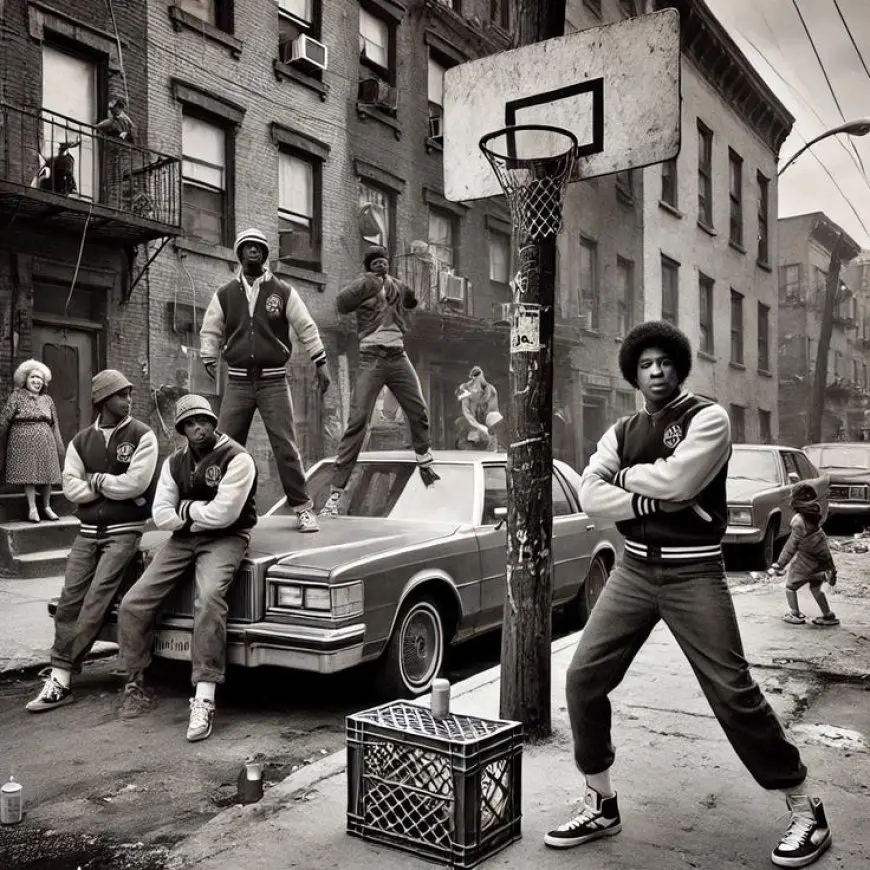The Global Influence of Hip-Hop Culture
The Global Influence of Hip-Hop Culture

Hip-hop culture has emerged as one of the most influential global movements of the 21st century, transcending its roots in the Bronx, New York, to become a worldwide phenomenon. Initially birthed in the late 1970s, hip-hop was more than just a musical genre—it represented a lifestyle, an attitude, and a means of self-expression. Its evolution into a global cultural force has significantly impacted music, fashion, language, art, and social movements, shaping the way people interact and communicate across diverse societies.
The Birth and Early Days of Hip-Hop
Hip-hop originated as a creative outlet for marginalized youth in the Bronx, a borough of New York City. Early pioneers like DJ Kool Herc, Grandmaster Flash, and Afrika Bambaataa developed the foundational elements of hip-hop: rapping (MCing), DJing, breakdancing, and graffiti. These elements became a way for young people to communicate their experiences and assert their identities in a world that often overlooked them. Hip-hop was more than just music—it was a cultural movement that offered an alternative to the mainstream narratives in American society.
Hip-Hop’s Expansion: From Local to Global
As hip-hop music began to gain popularity in the United States in the 1980s, it quickly spread across borders, finding audiences in Europe, Asia, Africa, and beyond. This expansion was fueled by the power of media, particularly the rise of music videos and the global reach of MTV. The commercial success of artists like Run-D.M.C., Public Enemy, and N.W.A. during the late 1980s and early 1990s helped hip-hop break into the mainstream, not just in America, but in countries worldwide.
In the 1990s, the growth of hip-hop was further amplified by the emergence of diverse regional sounds, from the West Coast gangsta rap scene to the Southern hip-hop explosion in cities like Atlanta and Houston. Hip-hop also began to influence other genres of music, such as pop, rock, and electronic music, leading to collaborations that reached even larger audiences.
The Role of Hip-Hop in Fashion and Style
One of the most visible aspects of hip-hop culture’s global influence is its impact on fashion. What started as a streetwear style in New York—characterized by baggy pants, oversized shirts, gold chains, and sneakers—soon became a global trend. Brands like Adidas, Nike, and Supreme, once popular in urban communities, became international fashion icons. Hip-hop artists like Run-D.M.C., Jay-Z, and Kanye West transformed the fashion industry by creating partnerships with top designers and launching their own clothing lines. Through these collaborations, hip-hop culture has continually pushed boundaries, blending high fashion with streetwear and creating a unique visual identity.
Hip-Hop’s Influence on Language and Communication
Hip-hop has also significantly shaped global language and communication. The genre's lyrical content, often filled with clever wordplay, slang, and metaphors, has introduced new terms and expressions into everyday language. Words and phrases from hip-hop, such as “bling,” “yo,” and “chill,” have become ubiquitous in everyday speech around the world. The influence of hip-hop slang can be heard in diverse languages, with non-English-speaking countries adopting and adapting the lexicon in their own unique ways.
Additionally, hip-hop has played a vital role in the development of digital communication. Platforms like YouTube, Instagram, and TikTok have allowed hip-hop artists to directly connect with their global fanbase, promoting their music and personal brand across borders. The culture of “freestyle” rapping, for instance, has found its place in online challenges, with people from all over the world engaging in spontaneous rap battles and remixing popular tracks.
Hip-Hop as a Tool for Social Change
Beyond its entertainment value, hip-hop has become a powerful tool for social and political change. Hip-hop artists have consistently used their platforms to address issues like inequality, police brutality, racism, and poverty. In the United States, artists like Tupac Shakur, Kendrick Lamar, and Childish Gambino have used their music to critique systemic racism and social injustice. These themes resonate not just with American audiences but with listeners worldwide who experience similar struggles.
In countries like Brazil, South Africa, and France, hip-hop has become an essential form of protest and resistance. In Brazil, the genre has helped highlight the struggles of the favelas (slums), while in South Africa, it has played a role in addressing issues of post-apartheid inequality. Through their lyrics, hip-hop artists continue to bring attention to the challenges facing their communities and inspire social movements that transcend national borders.
Hip-Hop’s Impact on Global Youth Culture
Perhaps the most profound influence of hip-hop has been its effect on global youth culture. Across continents, young people have adopted hip-hop as a means of self-expression, identity formation, and rebellion. Whether through rapping, dancing, graffiti, or fashion, hip-hop provides a way for young people to challenge societal norms, express their creativity, and find solidarity with others who share similar experiences.
Hip-hop has also fostered cross-cultural exchange, as young people around the world remix American hip-hop styles to create their own unique regional interpretations. From French rap to K-pop’s incorporation of hip-hop elements, the genre has inspired countless adaptations that reflect the diverse cultural contexts in which it is embraced.
The global influence of hip-hop is undeniable. What began as a localized movement in the Bronx has transformed into a worldwide cultural force that shapes music, fashion, language, social movements, and youth culture. As hip-hop continues to evolve, it remains a powerful tool for self-expression and social change, giving voice to those who have been historically marginalized. Its ability to cross boundaries—whether cultural, linguistic, or geographical—ensures that hip-hop will remain a dominant force in global culture for generations to come.







